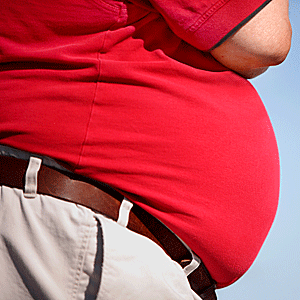
A European Union law barring job discrimination against the disabled may apply to extremely obese people, according to an adviser to Europe's top court.
The non-binding opinion concerns the dismissal of Karsten Kaltoft, a child-minder, by a Danish city council in 2010. Kaltoft argued that his obesity was part of the reason he lost his job and that it amounted to unfair discrimination, an allegation that Billund city council denies.
The Court of Justice of the European Union was asked to rule on whether EU law forbids discrimination on the grounds of obesity and if obesity can be considered a disability.
Read: Inactivity may explain obesity epidemic
The advocate general, who advises the European court in Luxembourg, found that EU law does not prohibit discrimination specifically on the grounds of obesity, even if it does offer general protection against bias on the grounds of disability.
BMI
But Niilo Jaaskinen, the advocate general, did conclude that extreme obesity, classified as having a body mass index (BMI) of more than 40, could be considered a disability.
"If obesity has reached such a degree that it plainly hinders participation in professional life, then this can be a disability," Jaaskinen said.
BMI is an indicator of obesity that takes into account a person's weight and height. Kaltoft never weighed less than 160 kg (352 lbs) during his employment, meaning he had a BMI of 54, the advocate general said.
Read: Eating at the table linked to lower BMI
A BMI between 18.5 and 24.9 is considered normal weight, over 30 is considered obese, and a BMI over 40 is severely obese.
Recommendations from advocates general are usually followed by the court, which will consider the Kaltoft case over the next few months.
Obesity as a disability
In his opinion, Jaaskinen said that even where the condition does not affect a person's ability to carry out a specific job, it can still make it harder compared to other people, therefore making it a disability.
Furthermore, Jaaskinen threw out the notion that a "self-inflicted" disability could be any less worthy of protection, saying "the origin of the disability is irrelevant".
Read: The realities of disability
"(It) does not depend on whether the applicant has contributed causally to the acquisition of his disability through 'self-inflicted' excessive energy intake," he added.
If the EU court upholds Jaaskinen's view, it would be up to a Danish court to decide whether Kaltoft's obesity met this definition.
Read more:
Breaking the cycle of obesity, inflammation and disease
Obesity gene may explain why some gain weight as they age




 Publications
Publications
 Partners
Partners














